As the balance of power in the world becomes increasingly complex, Japan aims to promote peace, stability, and prosperity across the Indo-Pacific region by establishing a free, open, and rules-based international order in the region.
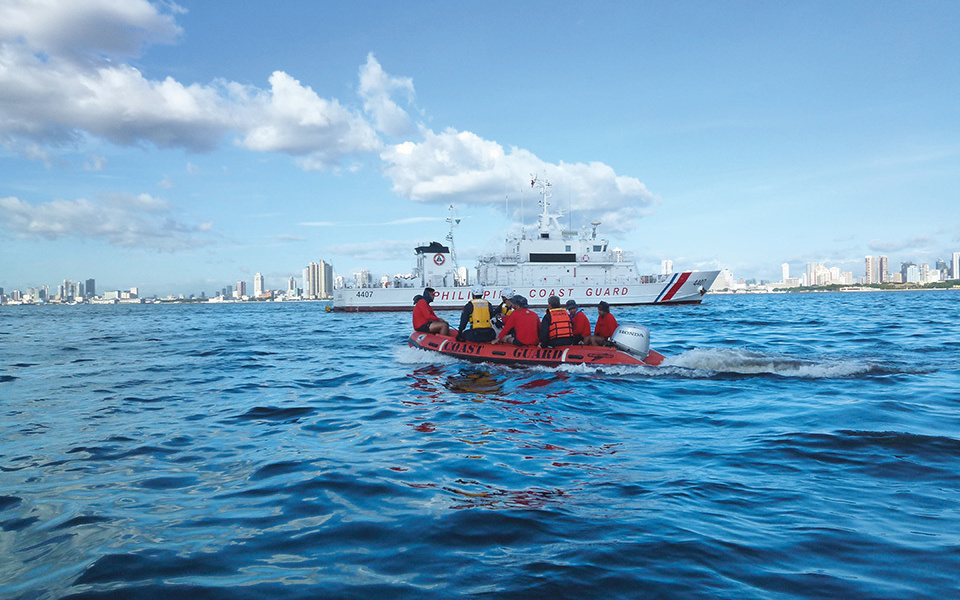
Speedboat training for the Philippine Coast Guard in 2017 (the white hull was provided by Japan).
While the Indo-Pacific region has been the engine of the economic growth of the entire world, it has faced a variety of threats in recent years including piracy, terrorism, and illegal fishing. To ensure the stability and prosperity that the region has enjoyed, it is important to firmly uphold fundamental principles of the international community, such as free trade, freedom of navigation and the rule of law. Guided by this philosophy, Japan works together with other like-minded countries to achieve a free and open Indo-Pacific. Japan places great importance on a future international order in the Indo-Pacific region that is free and open.
Located in the center of the Indo-Pacific region, ASEAN is the cornerstone of those efforts to achieve a free and open Indo-Pacific. Based on this recognition, Prime Minister SUGA Yoshihide visited Viet Nam and Indonesia in October 2020 as his first overseas visit after assuming office. ASEAN and Japan are together aiming to realize fundamental principles such as the rule of law, openness and transparency in the Indo-Pacific region, and Japan, as an Indo-Pacific country, announced that it will work steadily toward a free and open Indo-Pacific while acting in close cooperation with Viet Nam, Indonesia and the other ASEAN countries. Earlier in the same month, the Second Japan-Australia-India-U.S. Foreign Ministers’ Meeting was held in Tokyo. There, the four Ministers concurred on further developing practical cooperation in various areas such as quality infrastructure, maritime security, counterterrorism, humanitarian assistance, and disaster relief. The Ministers also reaffirmed their strong support for ASEAN’s centrality and unity as well as the ASEAN-led regional architecture, underlining their full support for the “ASEAN Outlook on the Indo-Pacific.” They also welcomed proactive efforts by other countries including Europe toward a free and open Indo-Pacific.
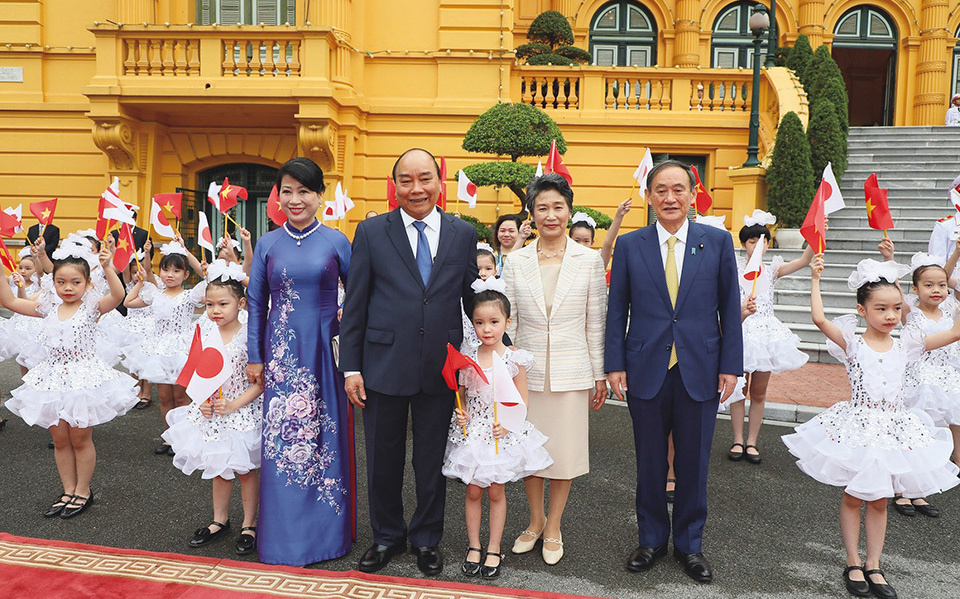
Met with H.E. Mr. NGUYEN Xuan Phuc, the Prime Minister of Viet Nam.
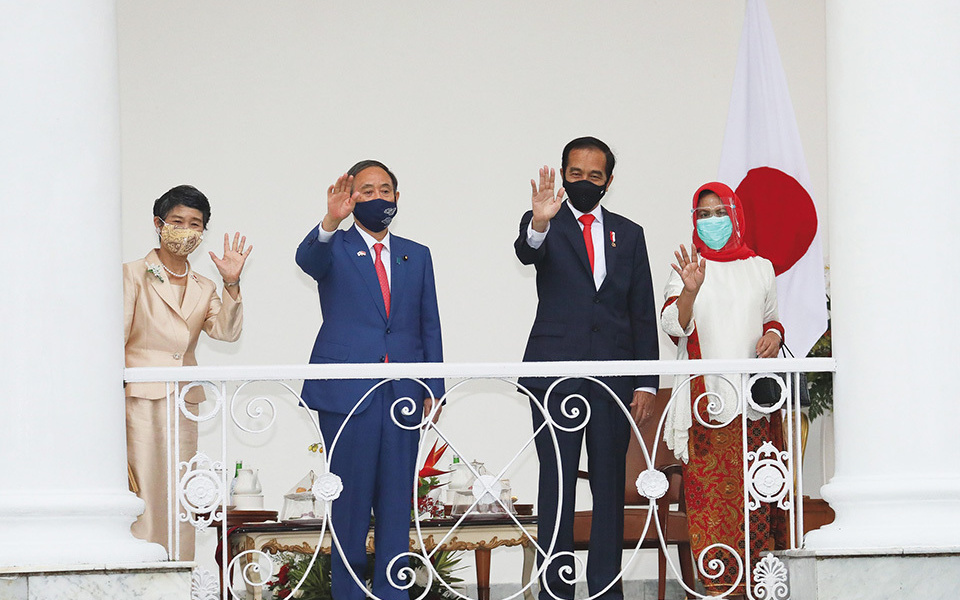
Met with H.E. Ir. H. Joko Widodo, the President of Indonesia.
Prime Minister Suga visited Viet Nam and Indonesia on his first overseas visit. Japan concurred with both countries to work together toward a free and open Indo-Pacific region for a peaceful and prosperous future of the region.
Playing an important role in collaborating with countries to build a free and open rules-based international order is, for example, the Japan Coast Guard (JCG), established in 1948. After providing assistance over several decades to improve coast guard capabilities based on the requests from other countries, the JCG established a specialized team named the Mobile Cooperation Team (MCT) in October 2017. MCT members with expertise and skills in such areas as search and rescue, maritime law enforcement, and environmental disaster prevention are dispatched to Indo-Pacific countries to give intensive training.
The JCG also set up the Maritime Safety and Security Policy Program (MSP), a master’s degree program for junior coast guard officers from coast guards across Asian countries that helps develop human resources for those countries. In this one-year program, junior coast guard officers, together with junior officers from the JCG, take courses in international law, international relations, maritime police policy, and other relevant subjects at the National Graduate Institute for Policy Studies and the Japan Coast Guard Academy.
A total of 47 officers have enrolled in the MSP since the program started in 2015. Glen B. Daraug, one of the first generation alumnus from the Philippine Coast Guard, says, “In Japan, I was able to develop the skills of decisiveness, dynamism, and advanced knowledge. We can continue to safeguard the sea that links us together and ensure the maritime order in accordance with international law.”
A single country alone cannot deal with cross-border crimes at sea and maintaining worldwide maritime order is a difficult task. Through cooperation with other countries, Japan will continue to promote the vision of a free and open Indo-Pacific with the greatest priority on realizing the values of “free and open.”
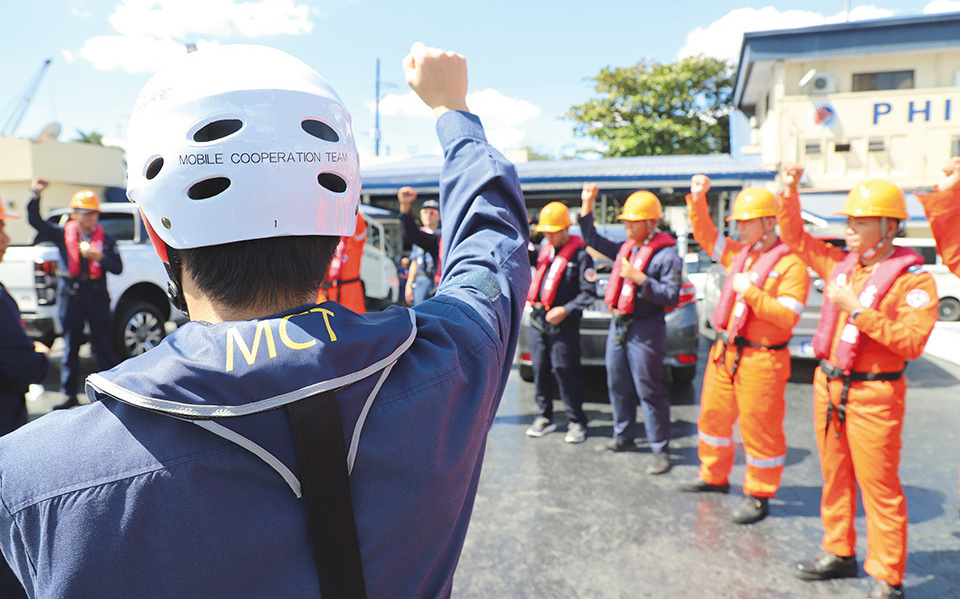
The MCT is a group of professionals with specialist skills. The team provides customized training based on the requests from recipient countries.
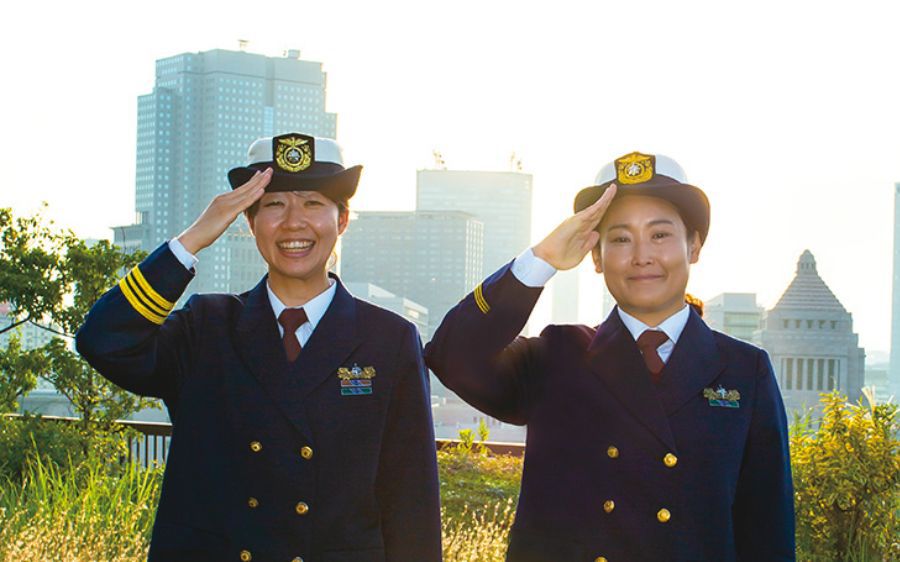
NOHARA Masako (left) completed the MSP program, and YOSHIOKA Yu (right) works with the MCT. Yoshioka became the first female dispatch officer, and shares her experiences gained in the field with participating countries.






























